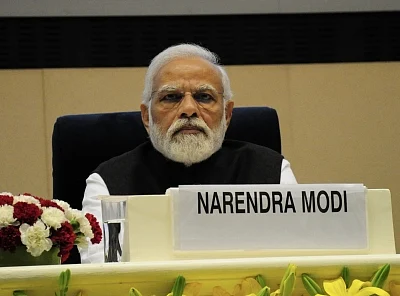Prime Minister Narendra Modi talked about several examples of India's governmental welfare policies that would guide India on its path of inclusive growth for the upcoming 25 years.
PM Modi was speaking at the First Arun Jaitley Memorial Lecture on Friday, 8 July, when he talked about India's future and took a moment to pay his respects not only for Jaitley but also to former Japan Prime Minister Shinzo Abe.
"Reforms are being undertaken by conviction, not compulsion. They are a win-win choice. No real economic growth possible without inclusion and no inclusion possible without growth."Narendra Modi, Prime Minister of India
Finance Minister Nirmala Sitharaman began the event by pointing out that Jaitley was the one who brought about two major reforms, namely, GST and the Bankruptcy Code. It was during Jaitley's tenure that the presenting date of the Union Budget was preponed to 1st February and a separate presentation of the Railway Budget was abolished, as reported by Tribune India.
"He valued the good discourses. His interest in cricket, love for fountain pens and watches was well known. He was a great connoisseur of food and could name the best restaurants in 25 cities across the world."Nirmala Sitharaman, Finance Minister of India
The PM spoke with a "heavy heart" about the assassination Shinzo Abe, the former Prime Minister of Japan.
He also referred to the status of the Indian economy and said that the country is definitely facing some challenges, "but there are 130 crore solutions," Modi added.
"Two hundred and nine new medical colleges have been built in the alast eight ears compared to 50 in the previous 10 years. Nine crore free cooking gas connections were given, 10 crore toilets constructed and 45 crore bank accounts were opened. This showed that the government was committed towards inclusivity."Narendra Modi, Prime Minister of India
Singapore's senior minister Tharman Shanmugaratnam, who was the primary speaker at the First Arun Jaitley Memorial Lecture, said that India needed to grow by about 8-10 percent over the next 25 years to successfully create jobs and increase the average income in the country.
He added that globalisation and global trade would be key in India's growth in the upcoming years.
(At The Quint, we question everything. Play an active role in shaping our journalism by becoming a member today.)
